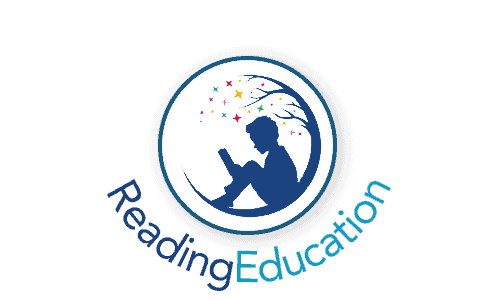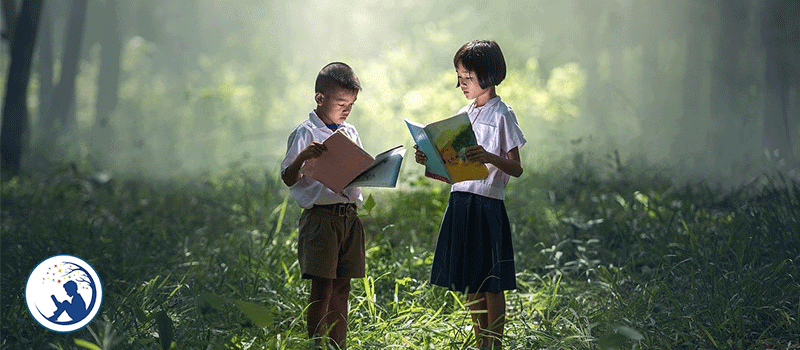If you’re looking for the best literacy and language activities for kindergarten kids, preschoolers, and toddlers, you’ve certainly made a wise choice visiting us (welcome!) as in today’s piece; we’re going to explore the importance of early reading and literacy and what you can do to help boost your child’s literacy development.
Before we begin, it’s important to discuss ‘early infancy’, what it is, and why it’s important, as this will not only help you to understand why it is so crucial to your child’s development but also why we’ve chosen the literacy activities included in this article.
What is ‘Early Literacy’?
In short, ‘early literacy’ can be described as the ‘development of language from an early age’; and, if you weren’t aware, ‘literacy’ is the ability to read, write, and understand language in both written and spoken forms – something that is absolutely critical to any child’s learning and development.
Early literacy begins from almost the day your child was born. After all, the world around us is full to the brim of language; therefore, we expose our children to it every single day of their lives regardless of their age, be this through spoken or written language.
Is Early Literacy Important?
Very. Literacy is the foundation of all other forms of learning and is vital to your child’s development. In fact, introducing your child to literacy and language prior to beginning school is one of the best ways to increase your child’s potential and help them transition into school life and learning more smoothly.
While it certainly isn’t necessary to read Shakespeare to your pre-school child, it is essential to expose them to all forms of language each and every day through a wide array of mediums: words, letters, pictures, spoken words, spoken letters, reading, writing…etc. – there are so many ways you can do it, and just a few of these are listed below.
Of course, which you include in your daily literacy routine will depend on your child’s age, so we’ve split these activities into the following sections:
- Toddlers.
- Pre-school & kindergarten.
The Best Literacy Activities for Toddlers
Toddlers will typically accrue literacy skills through play; therefore, it’s important that, as a parent, you view everyday tasks as literacy-building opportunities. Here are some good examples:
#1 – Reading
Yes, this might be the most obvious of activities for boosting literacy, but it’s absolutely crucial to development, so there’s no way we weren’t going to include it! Reading is not only a way to introduce your child to the world of written words and stories – but it’s also a great time for bonding, too!
#2 – Audiobooks
If you’re unable to read for whatever reason (perhaps you’re driving), why not use audiobooks? Although they won’t replace you and nurture the bond between your child and you, they will help to surround your child with words, language, and stories when you’re unable to read to them. Plus, the more audiobooks they listen to, the greater vocabulary they will be exposed to.
#3 – Picture Books
Literacy isn’t all about the written word; it’s about spoken language too. Looking at picture books will help your toddler to put their thoughts into words and use words to describe what they see and what is happening.
#4 – Trips to the Library
One way to immerse your toddler in the world of books is by taking them to a place that will seem like a, er, world of books to them! The library is the best place to explore books, so we highly recommend getting yourselves along there as much as you can. Young children love taking books home, so it won’t be long before they’re bugging you to go to the library more often!
#5 – Talking
Providing your child with a verbal commentary of daily life is probably the best way to introduce them to new things, words, phrases, and general language. Whenever you’re doing something in the presence of your toddler, tell them about it. Even though your toddler probably won’t understand half of what you’re saying, it’s still a great idea to expose them to new words, terms, and language.
#6 – Nursery Rhymes & Songs
If there’s one thing that’s synonymous with early literacy development, it’s nursery rhymes! Singing songs is a fundamental part of building early literacy skills, so indulge in singing songs and nursery rhymes whenever and wherever. It’s an excellent way for your little one to learn how to rhyme words, and the repetition will help to cement words and phrases into their small yet rapidly developing grey matter.
#7 – Playdough
When I was a toddler, I loved playdough. I’d sit there for hours on end, creating all manner of weird and wonderful things. But not only playdough; Duplo, lego, playing sand and the like can help to build fine motor skills, which are essential when they come to hold a pencil and to learn to write.
The Best Literacy Activities for Preschoolers & Kindergarten-aged Children
When your child is making the transition from being a toddler to becoming a preschooler, literacy development at home can become a little more purposeful. By building a solid foundation of literacy skills when your child is young, you will often notice that the next steps in their literacy progression are actually lead by them and occur completely organically. Here are a few examples:
#1 – Reading With and To Your Child
Yes, once again, reading sits atop our list. This time, however, it involves both reading to and with your child. Read absolutely everything and anything you can—newspapers, magazines, leaflets, menus etc. Read before bed. Read recipes. Any words you think they might be able to read, get them to read! However, it’s crucial to make it fun and enjoyable; otherwise, your child may start to have negative feelings towards reading which may hamper their progress and development.
#2 – Shopping Lists
Making a shopping list is something that we adults do week-in, week-out, so why not get your little one to join in? Give them their own pencil and paper, and ask them to make their very own shopping list. Don’t expect them to spell everything correctly or for it to make complete sense, but encourage them to write or draw what they’d like to get from the shop. Not only will this help them during the first steps of their writing journey, but it will also help them to understand the purpose of writing.
#3 – Fine Motor Skills
Children have naturally weak motor skills and stamina simply down to lack of practice; therefore, it’s essential to give them plenty of opportunities to practise their fine motor skills at every opportunity. To do this, allow them to use pencils, pens, crayons, and paintbrushes as often as possible (supervised, of course!); give them toys such as Lego and Duplo to play with; ask them to help with cooking and preparing ingredients, and encourage them to use scissors (again, supervised).
#4 – Audiobooks
Audiobooks have already been mentioned in this list, but it’s wise to list them again just because of how beneficial they can be. There is no better way to expand your child’s vocabulary than by listening to books and stories!
#5 – Letters
Not only is letter writing fun, but it’s also purposeful; therefore, it’s an activity that you should include as much as you can. Speak with your child’s friend’s parents to arrange a joint letter swap. All kids love getting a letter through the post, so they’ll be super excited to get writing!
#6 – Match the Letters and Sounds
A simple yet highly effective activity for preschoolers. Give your child a single letter of the alphabet (written on a piece of card or paper), then ask them to place on the card something that begins with that letter.
#7 – Label Everything!
One of the quickest ways for a child to boost their literacy and understanding of the world around them (in relation to words and language)is to label everything around your home. When I sat everything, I mean as much as you can without it looking like a label factory! As your child makes their way around the house, they’ll soon be accustomed to what things are, even if they can’t quite read or understand the words.
#8 – Board Games
Board games are a fantastic way to boost literacy, especially those that involve verbal communication. Of course, if you can find specific literacy games, then you’ll have the best possible games for literacy development!
#9 – Treasure Hunt
Who doesn’t love a treasure hunt?! Hide letters around the house and ask your child to find them (give them a few clues, so they’re not heading off on a wild goose chase!), then when your little one finds a letter ask them to return to you and tell you as many words as they can beginning with that letter.

